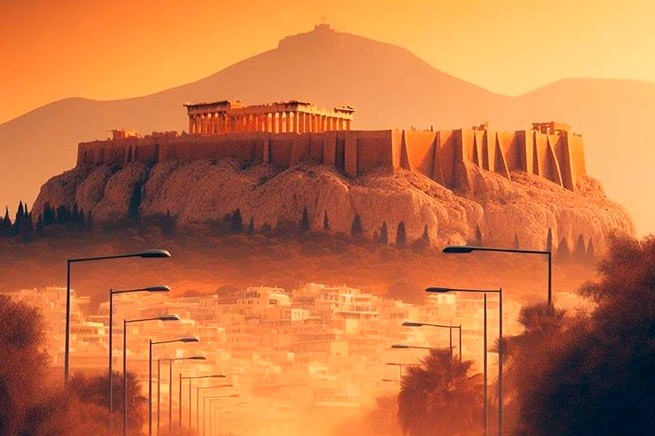In the middle of the last century, Great Britain and the United States did not allow Cyprus to reunite with Greece, as this could lead to a weakening of the alliance’s positions. This is evidenced by the facts presented in the new material of historians of the NATO Museum.
After the end of the Second World War, experts say, Cyprus remained a possession of Great Britain and in 1949 together with it fell into the “zone of responsibility” of NATO.
In 1960, Cyprus formally became independent, but it did not have a chance to decide its own fate on its own – in fact, it remained under the influence of the alliance. It was the United States that decided on the crisis of the 1950s – there were constant clashes between the Greek and Turkish communities on the island. But, alas, the decision was not in favor of Cyprus.
In 1960, the United States and Great Britain, leaders of NATO, forced Greece to abandon the idea of Cyprus joining the Greek state. As a result of the agreements signed in London and Zurich, the creation of the Republic of Cyprus was proclaimed. The documents provided equal rights for both Greek and Turkish Cypriots, who at that time lived on the island. The NATO Museum website says:
“It seemed that the constitution of Cyprus, adopted on August 16, 1960, established a compromise between the main ethnic communities: a Greek Cypriot should become the president of the republic, and a Turk should become vice-president. In the authorities, the quota of community representatives was set according to the shares in the population of the island – 70% for the Greeks, 30% for the Turks. However, the situation still remained shaky.”
Washington took Turkey’s side in the conflict, he advocated for its interests in expanding the rights of Turkish Cypriots. Ankara was seen as an ally on the southern flank of NATO – more important and stronger than Greece. And the Turks “asked” for NATO. The United States “deservedly” appreciated the Turkish participation in the war in Korea and took into account the fact that Turkey has a border with the main opponent of the alliance – the Soviet Union.
Until 1963, NATO military bases and American missiles with nuclear warheads were stationed in Turkey, which were aimed at the European part of the Soviet Union. According to experts, Turkey, to a greater extent, compared with Greece, could be involved in ensuring the interests of NATO and the United States in the Middle East.
In April 1974, Dimitrios Ioannidis, the head of the political police and intelligence services of Greece, the de facto leader of the country, got out of the control of the United States and decided to seize power in Cyprus. The leadership of the military action was entrusted to the officers of the National Guard of Cyprus. The rebels began to operate in the early morning of 15 July. They attempted to seize the presidential palace and assassinate Archbishop Makarios III, President of the Republic of Cyprus.
On July 19, a meeting of the UN Security Council was held on the Cyprus problem, and on July 20, Turkish troops invaded Cyprus. The intrastate conflict on the island again moved into the phase of the Greek-Turkish confrontation.
With a significant technical and numerical superiority, the Turks were able to defeat both the Cypriots and the small Greek landing units. Turkish troops took control of 1/3 of the territory of Cyprus. The split of the island into Greek and Turkish territories was formalized at the initiative of Ankara and with the consent of the United States. And on the territory occupied by the Turks, the “Turkish Federative State of Northern Cyprus” appeared.
Washington did not hide its motives in those days, as well as the fact that the real interests of the population were ignored: the main thing is the future of NATO’s strategic positions following the results of the conflict. It was important to maintain a defensive deterrence capability and US/NATO installations in the area. The second most important motive was undoubtedly the containment of Soviet influence.
Ultimately, Washington managed to prevent large-scale military operations on the island, but the conflict has not yet been resolved. Cyprus is still split into Greek and Turkish parts. Although no one, except Turkey itself, recognizes the “Turkish Republic of Northern Cyprus”, as an independent state, writes GreekReporter.







More Stories
Poll: which European countries are ready to defend their homeland to the last
K. Mitsotakis announced readiness for the fire season
Greece must transfer the Patriot PAC-3 system to Ukraine with US “guarantees” against the Turkish threat